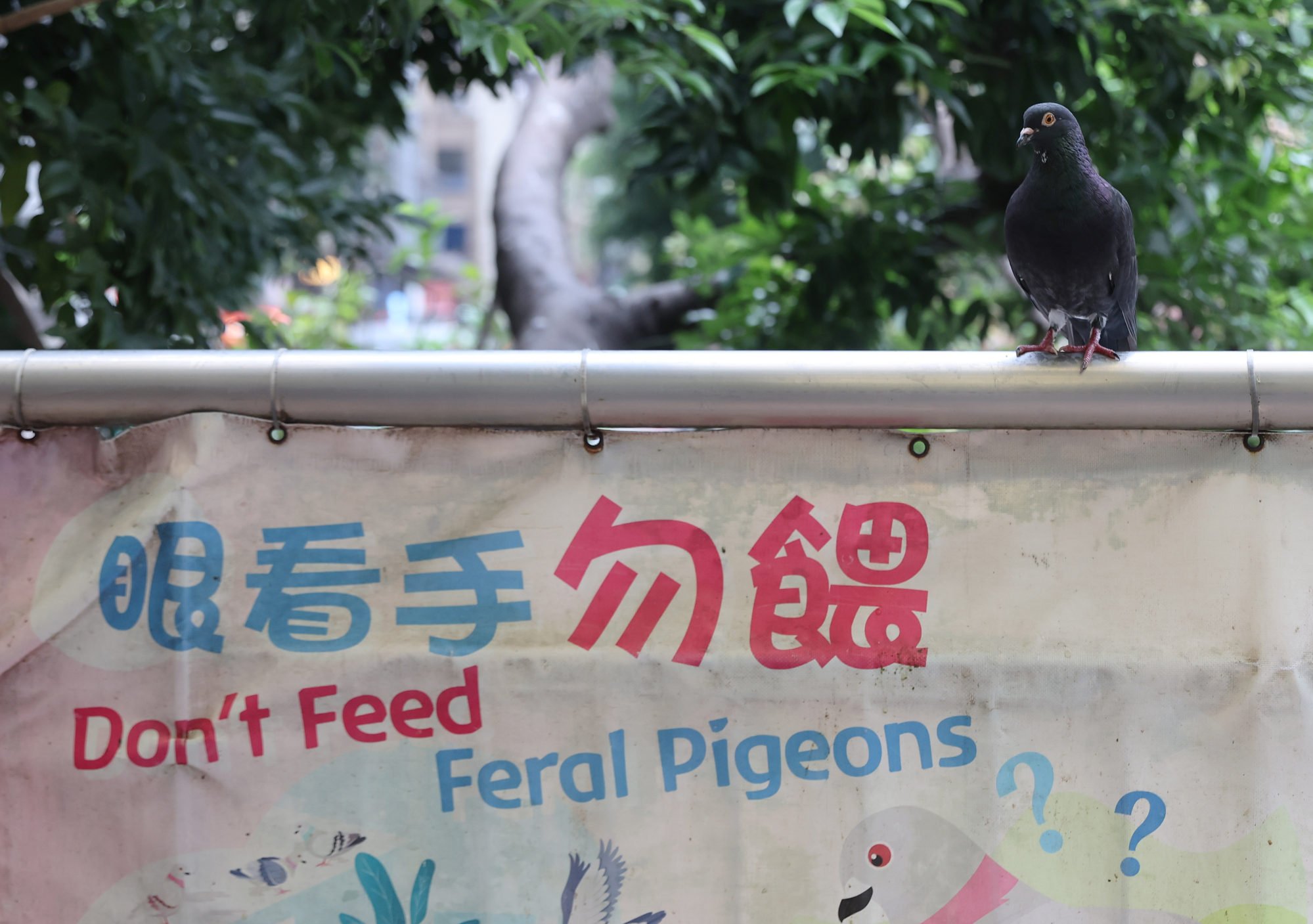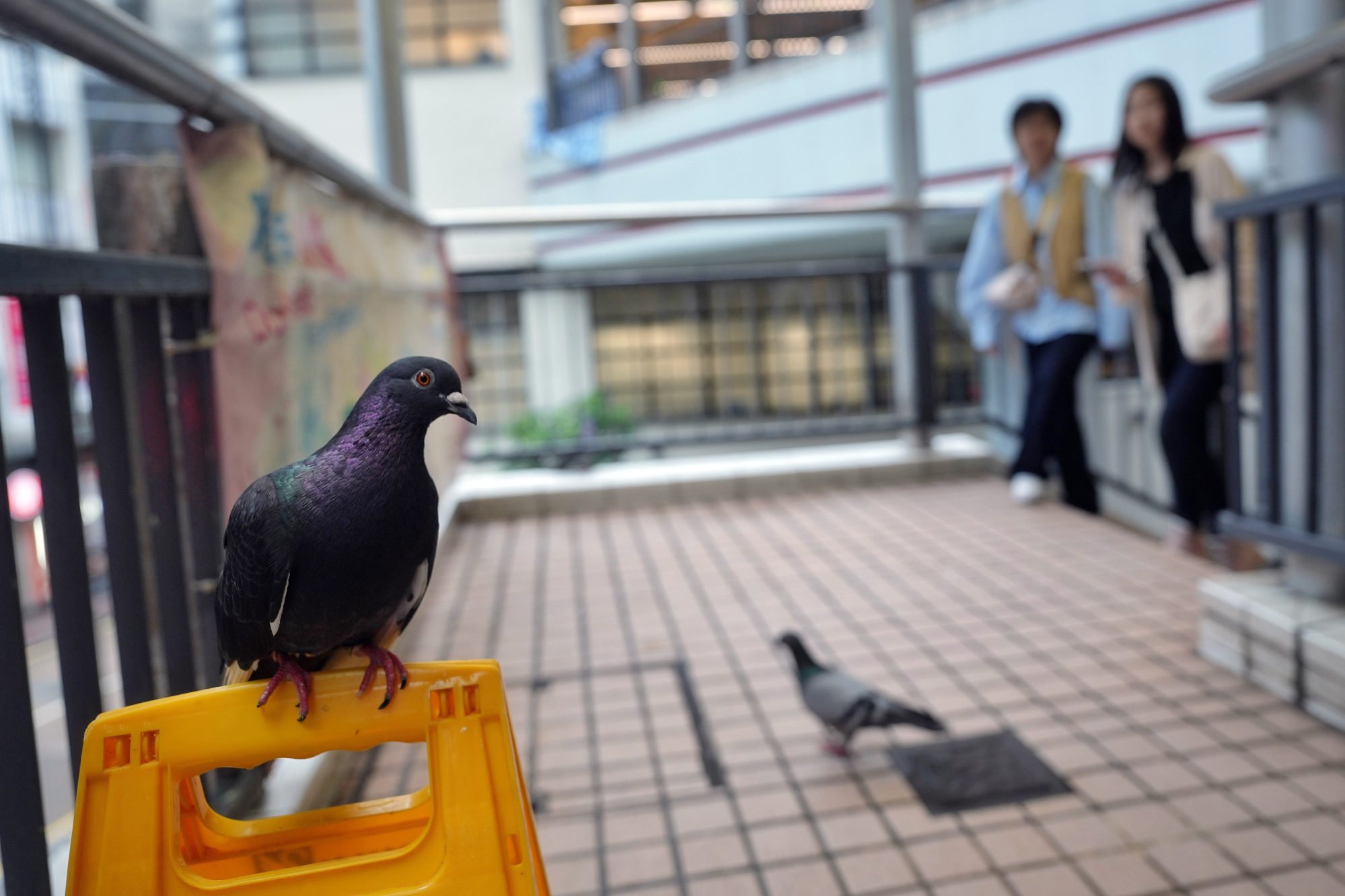
Explainer | Hong Kong plans to ban feeding feral pigeons in August. The Post breaks down what you need to know about the legal change
- Authorities say feeding feral pigeons threatens their survival, increases risk of disease and parasite transmission
- Offenders will be subject to maximum fine of HK$100,000 and year in jail
Hong Kong will impose a ban on feeding pigeons from August 1, following the passage of an amendment bill to the Wild Animals Protection Ordinance on Wednesday.
Here, the Post looks at what it is about and how not to fall foul of the law.
1. What is the new ban about?
Feeding wild animals, such as monkeys, boars and tree sparrows, is prohibited citywide under the existing provisions of the ordinance, with offenders liable to a HK$10,000 (US$1,280) fine upon conviction.
But feral pigeons are classified as domestic animals under the common law, thus falling outside the definition of wild animals under the ordinance.
Law enforcement actions against feeding pigeons currently can only be taken under the Public Cleansing and Prevention of Nuisances Regulation and the Fixed Penalty (Public Cleanliness and Obstruction) Ordinance.
The amendment to the ordinance has closed that loophole and increased the maximum penalty.
2. Why is it necessary?
The government has said that feeding feral pigeons threatens their survival because it alters their foraging habits. It also jeopardises their ability to survive on their own and increases the risk of disease and parasite transmission.
It can also happen to other species when they are attracted to eat what feeders offer them.
Meanwhile, feral pigeons’ food and faeces can foul public places and cause inconvenience to residents and passers-by.

3. What happens if you are caught feeding pigeons?
Offenders are subject to a maximum fine of HK$100,000, 10 times the current amount, and a year’s imprisonment.
A HK$5,000 fixed penalty system will be introduced, which can be issued on the spot for those caught feeding wild animals.
Prosecutions, instead of fixed penalties, will be considered in cases of serious nature and extent, such as repeated violations.
Public policy experts earlier raised concerns over the heavy penalty, which was deemed “disproportional” to the wrongdoing.
But authorities said the new penalty was sufficiently high to reflect the seriousness of the consequences of the illegal feeding and provide a stronger deterrent effect.
4. Are there exceptions?
Pigeons that are in captivity or granted with a special permit, including racing pigeons, are exempted from the ban.
The government has dismissed concerns over the challenges enforcement officers will face differentiating them because those pigeons normally will stay in their loft.
5. How will the law be enforced?
Enforcement will be conducted by officers from police, the Food and Environmental Hygiene Department, the Leisure and Cultural Services Department, the Agricultural, Fisheries and Conservation Department and the Housing Department.
They can require offenders to provide personal details, such as their name, address, contact number and proof of identity for inspection. They can also issue fixed penalty notices.
They need to produce proof of appointment by those departments upon request.
A risk-based approach will be adopted with enforcement action taken in different locations based on intelligence and reports received.
Authorities have formulated standard enforcement guidelines, which will be updated regularly to ensure consistency, and promised to provide training to frontline officers.

6. Are there other measures to manage feral pigeons?
Authorities earlier conducted a trial programme for using contraceptive drugs on feral pigeons to control their population and mitigate the nuisance to public places.
It said public education was also carried out through roving exhibitions, street booths, public talks and thematic websites to explain the impact of human feeding and to understand the reasons behind feeding feral pigeons, with counselling provided.
7. What about other animals?
Domestic animals that went astray or were abandoned, such as cats, dogs or cows, are not covered by the ban.

